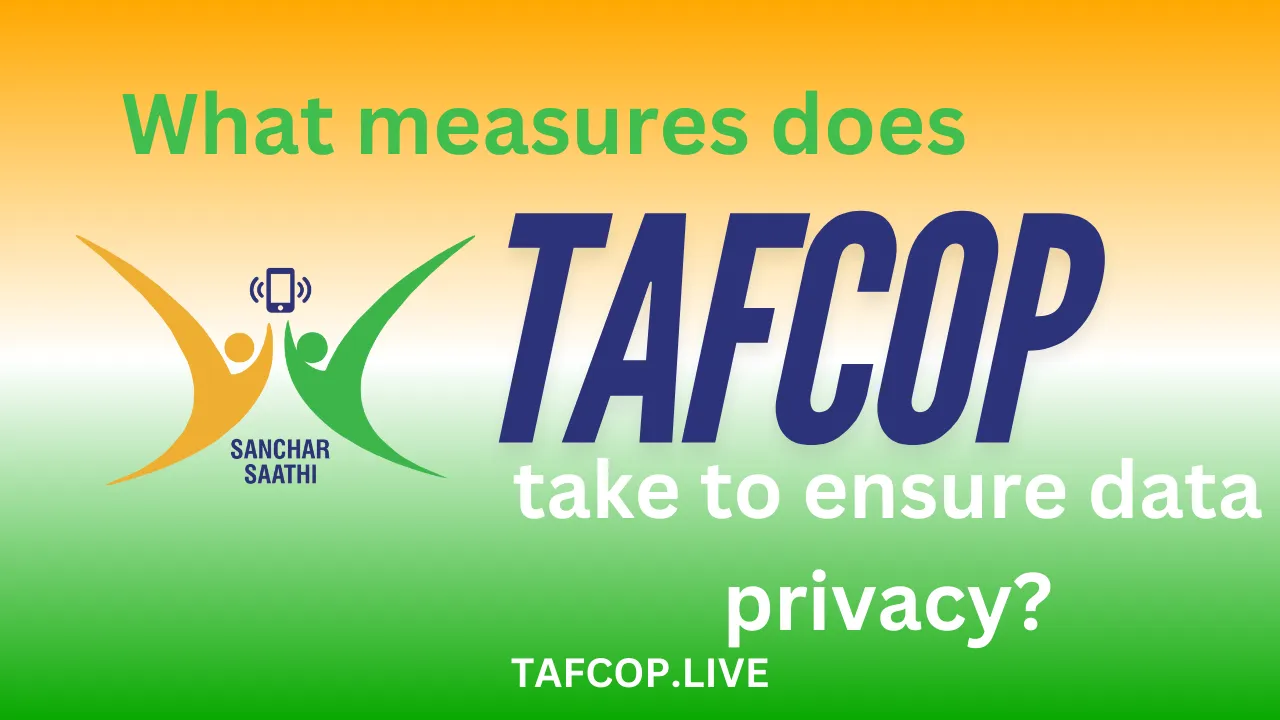The protection of personal data has become a matter of increasing concern in India, where rapid digitalization has heightened risks to individual privacy. TAFCOP (Telecom Analytics for Fraud Management and Consumer Protection) stands out as a vital initiative aimed at safeguarding telecom users from fraud while ensuring their data privacy remains uncompromised. With rising instances of unauthorized SIM usage and identity theft, TAFCOP takes deliberate steps to protect user information and promote a safer digital ecosystem.
What measures does TAFCOP take to ensure data privacy?(Quick Answer)
To ensure data privacy, TAFCOP employs robust encryption, stringent access controls, and compliance with regulatory frameworks to minimize data breaches and unauthorized access. This multi-layered approach reflects its commitment to preserving user trust and confidence in the telecom industry.
How does TAFCOP protect user data?
The security of user data is central to TAFCOP’s operations, and its protective measures extend beyond superficial safeguards. Here’s a detailed look at how TAFCOP achieves this:
- Data Encryption at All Levels
Every piece of user data collected or processed by TAFCOP is encrypted. By using advanced encryption algorithms, such as AES (Advanced Encryption Standard), TAFCOP ensures that even if unauthorized access occurs, the data remains unintelligible.Example: Suppose a user’s name, mobile number, and address are submitted to TAFCOP’s platform for fraud detection. This information is encrypted during transmission and while stored, preventing any potential interception. - Access Control Mechanisms
TAFCOP restricts access to sensitive information. Only authorized personnel, adhering to strict authentication protocols, can view or manage the data. Additionally, role-based access ensures that employees handle only the data relevant to their responsibilities.Key Practice: By implementing two-factor authentication and periodic access reviews, TAFCOP minimizes the risks posed by internal threats or accidental data exposure. - Compliance with Legal Standards
TAFCOP’s data handling practices align with Indian regulations like the IT Act 2000 and global standards for data privacy. This ensures that user rights are respected while simultaneously maintaining transparency in data usage.
Why is encryption important in data privacy?
Encryption is crucial in maintaining data privacy, particularly in a digital landscape where cyber threats are rampant. Here’s why TAFCOP relies on encryption:
- Prevents Unauthorized Access
Encryption transforms sensitive information into a scrambled format, readable only to those with the appropriate decryption keys. This ensures that intercepted data remains useless to hackers.For example, even if a cybercriminal intercepts an encrypted message, they cannot decipher it without the decryption key. - Builds Consumer Trust
Users feel more confident when their data is protected. TAFCOP’s encryption practices assure telecom subscribers that their personal information is safe, boosting trust in its services.Real-World Scenario: Imagine a telecom subscriber submitting their Aadhaar details for verification. Without encryption, this data could be exposed to malicious actors. TAFCOP’s encryption guarantees that such risks are mitigated.
Does TAFCOP comply with India’s data privacy laws?
Yes, TAFCOP strictly adheres to India’s data privacy regulations. Its operations comply with laws such as the IT Act 2000 and proposed regulations under the Digital Personal Data Protection Bill, ensuring robust protections for users.
- Data Minimization
TAFCOP collects only the information necessary for fraud management and consumer protection. By minimizing the data it handles, TAFCOP reduces privacy risks. - Transparency and Consent
Users are informed about how their data will be used. This commitment to transparency aligns with the principles of informed consent enshrined in Indian regulations.Quote: “Privacy is not a privilege; it is a fundamental right, and TAFCOP upholds this principle in all its actions.”
What role does user education play in TAFCOP’s privacy measures?
Educating users is a cornerstone of TAFCOP’s strategy to enhance data privacy. Awareness campaigns empower individuals to take charge of their information security.
- Awareness Campaigns
TAFCOP runs initiatives to educate the public about unauthorized SIM usage and ways to secure their telecom accounts. These campaigns highlight the importance of monitoring linked SIMs and recognizing suspicious activities. - Tools for Verification
Users can check the number of active SIMs registered against their ID through TAFCOP’s portal. This self-service tool promotes vigilance and reduces the likelihood of fraud.Example: A consumer unaware of extra SIMs linked to their Aadhaar might remain vulnerable to misuse. TAFCOP’s portal empowers them to detect and report such anomalies.
How does TAFCOP handle data breaches?
While TAFCOP’s security framework minimizes breach risks, it also has protocols for managing incidents effectively:
- Immediate Containment
In the event of a breach, TAFCOP isolates affected systems to prevent further exposure. A dedicated response team investigates the root cause and identifies vulnerabilities. - User Notification and Support
If user data is compromised, TAFCOP promptly informs affected individuals, providing steps to mitigate potential harm. Support channels are also established for user assistance. - Continuous Monitoring
Post-incident, TAFCOP strengthens its systems by addressing weaknesses and deploying advanced monitoring tools to detect unusual activity.
Conclusion
TAFCOP exemplifies India’s commitment to safeguarding user data in an increasingly digital world. By combining encryption, regulatory compliance, and user education, TAFCOP ensures that telecom consumers can trust its platform without worrying about privacy breaches. As data privacy concerns grow, initiatives like TAFCOP underscore the importance of proactive measures and transparency in building a secure digital ecosystem. Ultimately, TAFCOP’s actions not only protect individual rights but also bolster the broader goal of creating a safe and trustworthy telecom environment in India.

